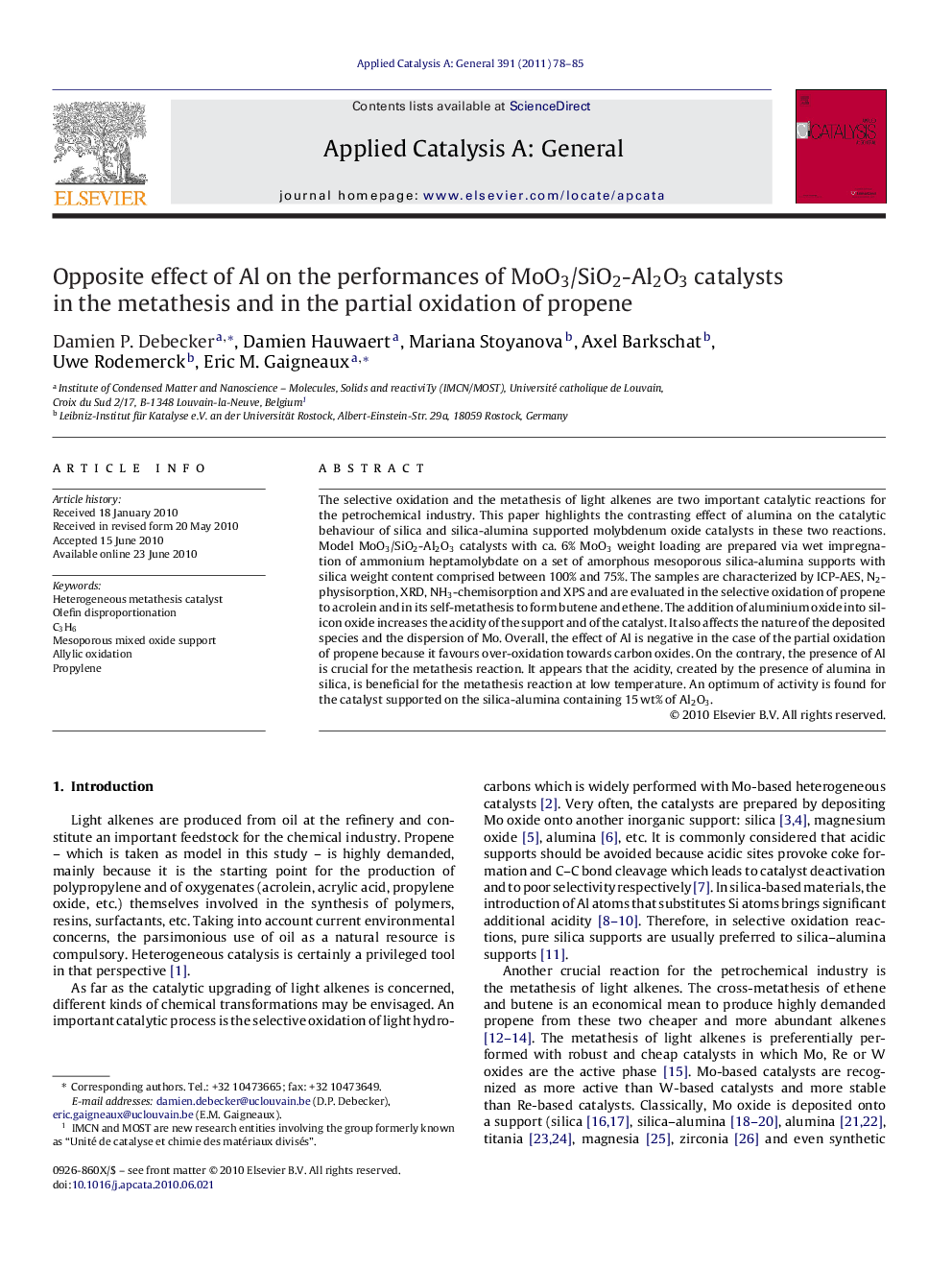| Article ID | Journal | Published Year | Pages | File Type |
|---|---|---|---|---|
| 41624 | Applied Catalysis A: General | 2011 | 8 Pages |
The selective oxidation and the metathesis of light alkenes are two important catalytic reactions for the petrochemical industry. This paper highlights the contrasting effect of alumina on the catalytic behaviour of silica and silica-alumina supported molybdenum oxide catalysts in these two reactions. Model MoO3/SiO2-Al2O3 catalysts with ca. 6% MoO3 weight loading are prepared via wet impregnation of ammonium heptamolybdate on a set of amorphous mesoporous silica-alumina supports with silica weight content comprised between 100% and 75%. The samples are characterized by ICP-AES, N2-physisorption, XRD, NH3-chemisorption and XPS and are evaluated in the selective oxidation of propene to acrolein and in its self-metathesis to form butene and ethene. The addition of aluminium oxide into silicon oxide increases the acidity of the support and of the catalyst. It also affects the nature of the deposited species and the dispersion of Mo. Overall, the effect of Al is negative in the case of the partial oxidation of propene because it favours over-oxidation towards carbon oxides. On the contrary, the presence of Al is crucial for the metathesis reaction. It appears that the acidity, created by the presence of alumina in silica, is beneficial for the metathesis reaction at low temperature. An optimum of activity is found for the catalyst supported on the silica-alumina containing 15 wt% of Al2O3.
Graphical abstract. Model MoO3/SiO2-Al2O3 catalysts with different support compositions are evaluated in the selective oxidation of propene and in its self-metathesis. Al increases the acidity of the catalysts. In oxidative conditions Al favours over-oxidation towards carbon oxides. In the metathesis reaction the presence of Al increases the catalysts activity and stability. 15% of Al2O3 in the support is the optimum.Figure optionsDownload full-size imageDownload high-quality image (115 K)Download as PowerPoint slideResearch highlights▶ Al content dictates the acidity of the support and of the catalyst. ▶ Acidity dictates catalytic performances. ▶ Al is deleterious for partial oxidation reaction. ▶ Al is beneificial for the metathesis reaction.
